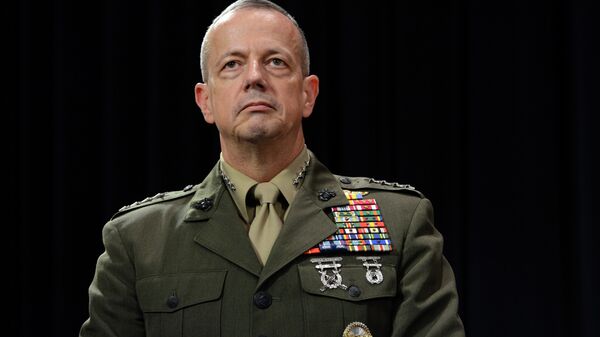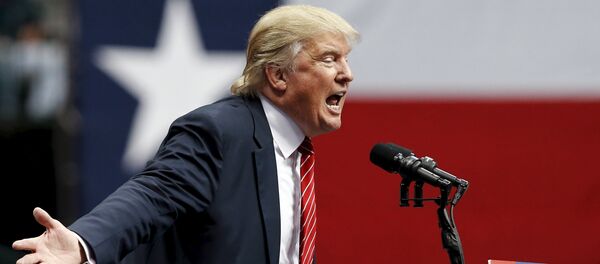WASHINGTON (Sputnik) — US Gen. John Allen, the President’s Special Envoy to lead the coalition against the Islamic State (ISIL), was hampered by restrictions on who he could work with on the ground in the fight against ISIL militants in Iraq and Syria, experts told Sputnik.
On Tuesday, Bloomberg News reported that Gen. Allen would be stepping down from leading the coalition against the Islamic State after slightly more than one year in the position.
Anti-ISIL coalition efforts came under fire last week after the Defense Department revealed that the US train-and-equip program had only put four or five Syrian fighters on the battlefield to combat the Islamic State.
"The major problem for any US commander is that he does not have Syrian partners that he is allowed to work with," University of Oklahoma Professor Joshua Landis told Sputnik on Wednesday.
US authorities, Landis argued, have restricted the military response in Syria because they do not like any of the three powers in Syria: ISIL, President Bashar Assad or the Al Qaeda-affiliated Army of Conquest.
"They aim to destroy them, but presumably one at a time," Landis suggested.
Bokhari emphasized that there is a "political cost" to working with certain factions on the ground in Syria, so Allen was probably limited in trying to partner with only those groups deemed "moderate."
"We keep using the word moderate rebels, mainstream rebels," Bokhari explained. "If everyone is a Salafist jidhadist of one flavor or another, and it’s all relative, then partners are a real hard commodity to acquire."
US leadership of the coalition efforts has increasingly come into question in recent weeks. The Department of Defense is currently investigating whether top military officials manipulated intelligence analysis that downplayed the threat of the Islamic State.
General Allen’s resignation comes amid increased tensions between Washington and Moscow over Russia’s increased assistance to the Syrian government in its counterterrorism efforts.
President Obama personally chose Gen. Allen to lead the 62-nation coalition against the Islamic State when it was formed in September 2014. The coalition has so far undertaken more than 6,500 airstrikes in Syria and Iraq.




